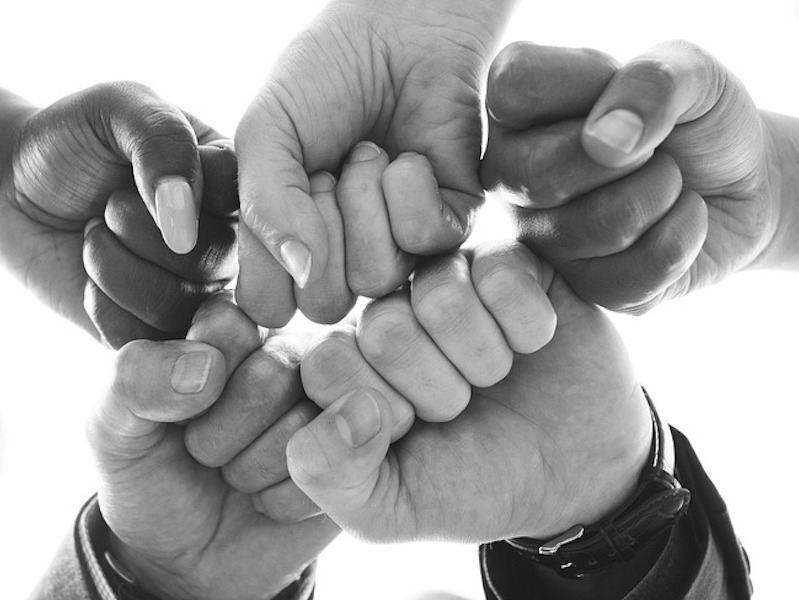By Sidney R. Hargro
Last week, it became abundantly clear that the Corona Virus Disease 2019 (COVID-19) would substantially impact all of our lives. Like many of you, Philanthropy Network has experienced an exponential surge in calls, emails, and texts alerting us of the growing impact of this crisis on nonprofits, small neighborhood businesses, and individual workers, especially hourly employees who are unable to work remotely and are challenged by closures of their workplace and schools. The majority of these communications were sent to inquire about philanthropy’s response in greater Philadelphia. The inherent hope was that in crisis, philanthropy would boldly respond with empathy, trust, and flexibility to have the backs of the nonprofit sector, most importantly those with the thinnest of financial margins who tirelessly work in and with our communities. It is abundantly clear that we are in unprecedented times and that unprecedented times require equally unprecedented, collective acts of unity and trust-based flexibility in the sector between funders, nonprofits, and the broader community.
COVID-19 will test our leadership mettle and pragmatic capacity to operationalize the notion that, “we are all in this thing together.” When this pandemic is behind us, we will be graded for our ability to:
- Listen in realtime to challenges facing our nonprofit partners and offer opportunities for real-time feedback from nonprofits regarding disaster and recovery grantmaking processes. Listen early and often to the plight of nonprofits and believe them. Listen early and often beginning today (if you have not already done so) and share what you learn with your peers. Philanthropy Network can help you share what you are hearing and what you are doing to address this crisis.
- Streamline proposal and reporting processes. There is nothing that requires funders to use lengthy online forms and other burdensome requirements, especially in the midst of a disaster response. A legal organization name, tax identification number, request amount, and a statement describing how COVID-19 is impacting the pursuit of their mission can be submitted by email or via an easy web-based platform of your choice. In Seattle, funders are allowing requests submitted by email. Reporting should be equally simple and easy.
- Fund through general operating support: Project support is the least effective method of grantmaking especially in the midst of disaster response and recovery. Yet, it is understood that old habits are challenging to overcome. If you don’t already offer general operating support, use the uncertainty and anxiety of this moment as a reason to increase the flexibility of your grantmaking. To be clear, this does not mean project support masquerading as general operating support. For example, the moment you ask a nonprofit how the funds will be used it becomes project support. Lead with trust and offer the flexible support needed for our nonprofits leaders to address the crisis.
- Advocate for local, state, and federal policies that center the plight of nonprofits. The nonprofits that are hardest hit by COVID-19 are those with slim margins between revenue and expense and those dependent on government funding and reimbursements for their services. Philanthropy Network will begin to share opportunities for funders to use their platform for collective impact in addition to monetary resources. Begin discussing this now with your boards. Relaxing funding constraints and requirements and inclusion in efforts to stimulate the economy must also include the nonprofit sector.
- Mobilize with other funders for a unified approach to rapid response in the short-term and recovery in the months to come. Funding with others increases your capacity to influence impact. We must all keep our eyes focused on regional resilience and how COVID-19 touches us all regarding our county, community, or neighborhood focus. Join with other funders in the region, or by grantmaking priority if you must, to pool resources. When you do, follow the same approaches listed above, namely listen, streamline, fund, and advocate. Assure that the focus of these efforts will center equity and go beyond the expected health, education, human services, housing priorities, etc. to include small community-based organizations (including arts organizations), community organizing and advocacy groups, and cultural organizations led by people of color. All too often major grant initiatives overlook the plight of these organizations and the role they play in our communities. Allowing a pandemic to erase these institutions will have a devastating effect on our region going forward.
There is no question, we will get through this. We will develop new muscles and emerge on the other end of this with new skills and stronger than ever before. To get there, however, we must first lose ourselves (and our silos) in a sea of “we” to form a unified coalition of funders, nonprofits, and government like never before. In the coming days, you will hear more about Philanthropy Network’s efforts to unify and strengthen the social impact ecosystem in our region. Let’s do this - together!
Sidney R. Hargro is President of Philanthropy Network Greater Philadelphia

